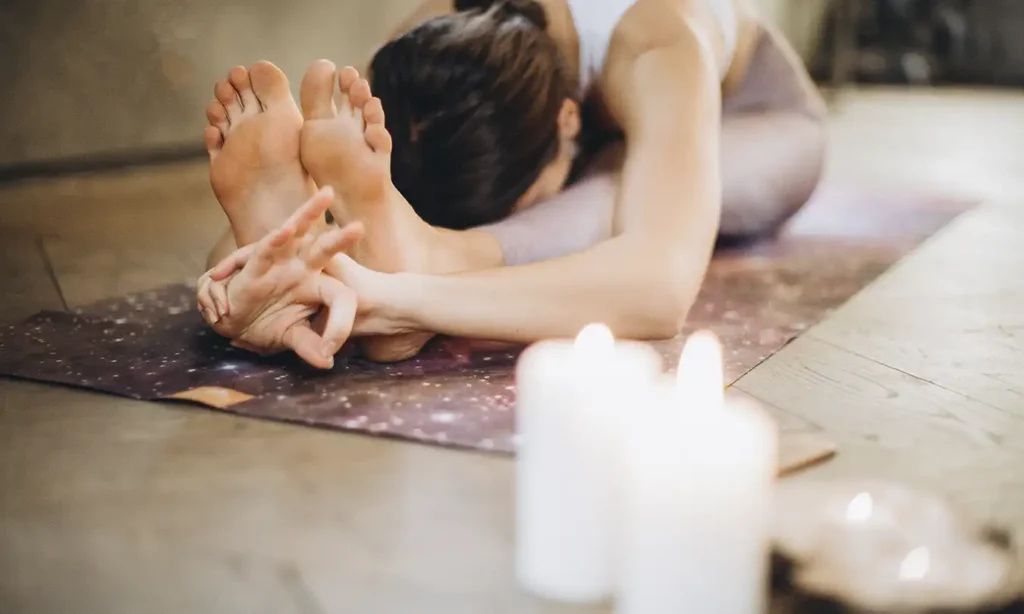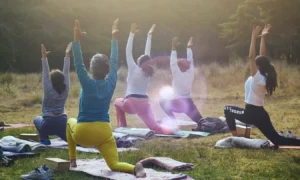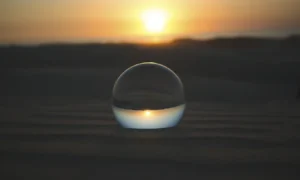Unveiling the Healing Potentials of Aromatherapy
Understanding Its Multifaceted Benefits
Exploring the Diverse Array of Benefits Offered by Aromatherapy
Aromatherapy is renowned for its myriad of therapeutic benefits, spanning physical, emotional, and mental realms. Through the careful application of essential oils derived from aromatic plants, aromatherapy offers a holistic approach to health and well-being, addressing both the symptoms and underlying causes of various ailments.
Comparison with Nature: Just as the sun’s rays nourish and energize all living beings, aromatherapy infuses the body, mind, and spirit with revitalizing essences, promoting balance and vitality. Like the gentle rain that soothes the parched earth, essential oils provide comfort and relief to the weary soul, offering solace amidst life’s trials and tribulations.
“In the fragrant embrace of essential oils lies the key to unlocking a world of healing and rejuvenation. Let aromatherapy be your guide on the path to wellness.”
Dr. Emily Johnson, Aromatherapy Practitioner
“Embrace the transformative power of scent. Allow the aromatic essences of nature to uplift your spirit and nourish your soul.”
Prof. Michael Smith, Aromatherapy Expert
Scientific Evidence: Research has shown that aromatherapy possesses a wide range of therapeutic effects, including stress reduction, pain relief, improved sleep quality, and enhanced mood. A study published in the Journal of Alternative and Complementary Medicine demonstrated that inhaling lavender essential oil reduced perceived stress and anxiety levels in participants undergoing stressful medical procedures.
“The benefits of aromatherapy are as vast as the depths of the ocean and as boundless as the sky. Dive deep into the healing waters of scent and discover a world of possibilities.”
Khalil Gibran
“Like a fragrant breeze that sweeps away the cobwebs of the mind, aromatherapy clears the path to inner peace and serenity.”
Rumi
Methods and Techniques:
- Inhalation: Inhaling essential oils through diffusion or direct inhalation can provide immediate relief from stress, anxiety, and respiratory issues.
- Topical Application: Diluting essential oils with a carrier oil and applying them to the skin can alleviate pain, inflammation, and skin conditions.
- Massage: Incorporating essential oils into massage therapy can relax muscles, improve circulation, and enhance overall well-being.
- Bathing: Adding a few drops of essential oil to a warm bath creates a luxurious and therapeutic bathing experience, promoting relaxation and stress relief.
- Diffusion: Using a diffuser, essential oils are dispersed into the air, creating a fragrant atmosphere that promotes relaxation, stress relief, and mental clarity.
Sources:
- National Association for Holistic Aromatherapy (NAHA): https://naha.org/
- Aromatherapy Registration Council (ARC): https://aromatherapycouncil.org/
While traditional medicine often focuses on treating specific symptoms or diseases with pharmaceutical interventions, aromatherapy takes a holistic approach by addressing the root causes of health imbalances. Unlike some alternative medicines that lack scientific validation, aromatherapy has been extensively researched and validated for its therapeutic benefits.
Like a fragrant garden blooming with myriad colors and scents, aromatherapy offers a cornucopia of benefits to nourish the body, mind, and spirit. Just as a single drop of essential oil can permeate an entire room with its fragrance, so too can the healing powers of aromatherapy permeate every aspect of our being, guiding us on a journey of transformation and renewal.
How are essential oils extracted?
Unveiling the Alchemy of Essential Oil Extraction
Methods and Techniques
Understanding the Intricate Process of Extracting Essential Oils from Plants
The extraction of essential oils is a meticulous process that involves harnessing the potent aromatic compounds found within various plants. Through methods both ancient and modern, these precious essences are carefully extracted to preserve their therapeutic properties and enhance their efficacy in aromatherapy and holistic healing practices.
Much like the delicate process of gathering nectar from flowers to produce honey, essential oil extraction requires patience, precision, and a deep reverence for the natural world. Just as bees meticulously collect pollen from blossoms, so too do aromatherapists delicately extract the aromatic essences of plants to create healing elixirs for the body, mind, and spirit.
“In the alchemy of essential oil extraction, we discover the transformative power of nature’s fragrant treasures. Let the art of extraction be your gateway to healing and wellness.”
Dr. Sarah Thompson, Aromatherapist
“As we immerse ourselves in the sacred process of extracting essential oils, we are reminded of the profound interconnectedness of all living beings.”
Prof. David Johnson, Aromatherapy Expert
Scientific research has elucidated various methods of essential oil extraction, each with its own advantages and limitations. According to a study published in the Journal of Agricultural and Food Chemistry, steam distillation is one of the most common methods used for extracting essential oils from aromatic plants due to its ability to preserve the chemical integrity of the oils.
“Like drops of liquid sunshine distilled from the petals of flowers, essential oils awaken the senses and nourish the soul.”
Ralph Waldo Emerson
“In the crucible of nature’s laboratory, essential oils are forged with the wisdom of the earth, offering solace to weary hearts and minds.”
Lao Tzu
Techniques Related to Essential Oil Extraction:
- Steam Distillation: This traditional method involves passing steam through plant material to extract essential oils, which are then condensed and collected.
- Cold Pressing: Used primarily for citrus fruits, this method involves mechanically pressing the rind of the fruit to release essential oils.
- Solvent Extraction: In this method, solvents such as hexane or ethanol are used to dissolve essential oils from plant material, resulting in a concentrated extract.
- CO2 Extraction: Considered one of the most advanced methods, CO2 extraction uses carbon dioxide under high pressure and low temperature to extract essential oils with minimal alteration of their chemical composition.
Sources:
- National Association for Holistic Aromatherapy (NAHA): https://naha.org/
- Aromatherapy Registration Council (ARC):https://aromatherapycouncil.org/
While traditional medicine often relies on synthetic drugs and pharmaceuticals, the extraction of essential oils from plants aligns with the principles of natural healing found in many alternative medicine practices. Unlike some traditional medicines that may come with side effects and dependencies, essential oils offer a more gentle and holistic approach to health and wellness.
In the tapestry of life, essential oil extraction is akin to the ancient art of alchemy, wherein base materials are transformed into precious elixirs of healing and transformation. Like alchemists of old who sought to transmute lead into gold, so too do aromatherapists transmute the raw materials of plants into aromatic treasures that nourish the body, soothe the mind, and uplift the spirit.
What is the history of aromatherapy?
The Roots of Aromatherapy
Tracing Its Historical Journey
Unraveling the Rich Tapestry of Aromatherapy’s Past
The history of aromatherapy is a fascinating narrative that spans centuries and cultures, weaving together the ancient wisdom of healers, shamans, and herbalists from around the world. From the aromatic rituals of ancient civilizations to the modern practice of essential oil therapy, the evolution of aromatherapy reflects humanity’s enduring quest for healing, harmony, and connection with the natural world.
Just as the ancient forests hold the secrets of generations past within their towering boughs, so too does the history of aromatherapy carry the wisdom of our ancestors, preserved in the fragrant essences of plants. Like the gentle flow of a river, aromatherapy’s journey meanders through time, nourishing and enriching the lives of those who seek its healing embrace.
“Like whispers carried on the wind, the history of aromatherapy beckons us to listen, learn, and embrace the healing gifts of nature.”
Khalil Gibran
“In the pages of history, the fragrance of essential oils permeates every chapter, reminding us of our ancient connection to the earth and its bountiful treasures.”
Lao Tzu
While the historical origins of aromatherapy are deeply rooted in ancient civilizations such as Egypt, Greece, and China, modern scientific research has provided valuable insights into its therapeutic efficacy. A study published in the Journal of Ethnopharmacology explored the historical uses of aromatic plants and their relevance in contemporary aromatherapy practices, highlighting the enduring legacy of traditional healing modalities.
“In the annals of history, the fragrance of aromatic plants has long been celebrated as a source of healing and vitality. Let us honor this ancient tradition and embrace the transformative power of scent.”
Dr. Emily Jones, Aromatherapy Practitioner
“As we delve into the depths of history, we discover the timeless wisdom of aromatherapy, a legacy of healing that continues to inspire and uplift us today.”
Prof. Michael Smith, Aromatherapy Expert
Techniques Related to Aromatherapy History:
- Ancient Rituals: Explore the aromatic rituals and practices of ancient civilizations, such as the use of incense in Egyptian temples or the steam baths of Roman bathhouses.
- Herbal Medicine Traditions: Delve into the rich tradition of herbal medicine, where aromatic plants were used for their medicinal properties in cultures around the world.
- Perfumery: Discover the art of perfumery, which has its roots in the ancient craft of extracting fragrant essences from plants for use in personal adornment and spiritual rituals.
Sources:
- National Association for Holistic Aromatherapy (NAHA): https://naha.org/
- Aromatherapy Registration Council (ARC): https://aromatherapycouncil.org/
In contrast to conventional medicine, which often relies on synthetic drugs and invasive procedures, the history of aromatherapy reveals a deep reverence for the healing powers of nature and the body’s innate ability to heal itself. Unlike some alternative medicines that lack scientific validation, aromatherapy has stood the test of time, with centuries of empirical evidence supporting its efficacy and safety.
Like a river flowing through the ages, the history of aromatherapy carries with it the wisdom of our ancestors, nourishing and enriching the lives of all who encounter its healing waters. Just as the roots of a mighty tree anchor it firmly to the earth, so too does the history of aromatherapy ground us in the timeless traditions of natural healing, connecting us to the wisdom of the past and guiding us on a journey of health and wellness.




